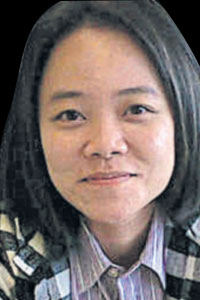
South Korea knows how to sell its products. Apart from K-entertainment, the country has also popularised K-merchandise through pop culture. From fried chicken and ramyeon cup noodles to egg drop sandwiches and soju, instant coffee and dietary supplements, we have seen countless products from South Korea in series and movies successfully create a huge customer base in Thailand.
Now South Korea is selling Thai culture too with the popular K-series King The Land, putting Thailand's tourism in the global spotlight. Starring Lee Jun-ho and Lim Yoon-a, the 16-episode romantic comedy series follows Gu Won, an heir of the King conglomerate, who has a crush on his hardworking hotel employee Cheon Sa-rang amid an intense inheritance fight with his half-sister.
In Episode 10 which aired on Netflix a few weeks ago, Gu Won takes Sa-rang and her friends on a trip abroad. And the chosen country is Thailand. Already famous as a tourist destination, which helped the country rake in 3 trillion baht annually, or approximately 18% of the country's Gross Domestic Production prior to the Covid-19 outbreak according to the Bank of Thailand, the nation is presented in King The Land as a vibrant mix of culinary, cultural and lifestyle highlights.
The entire episode is dedicated to many featured locations mostly in Bangkok, including Siri Sala Private Thai Villa, Sala Rim Naam at the Mandarin Oriental, Vertigo rooftop bar at Banyan Tree Bangkok, Iconsiam and Khun Daeng Vietnamese noodle shop as well as other culturally significant places such as Wat Arun, Loha Prasat at Wat Ratchanadda and Muang Boran (The Ancient City) in Samut Prakan.
These familiar tourist locations are blended and filtered into the storyline, particularly in the scene where characters buy a lot of street food at Klong Ong Ang Walking Street. Even the Thai audience wanted to have such an experience, not to mention viewers in other countries.
Such is South Korea's successful soft power recipe where products are not sold obviously, but it always works. South Korea's K-pop culture never uses a hard-sell strategy which is direct and pushy and that's why its soft power is warmly welcomed all over the world.
Thailand has a policy for the promotion of the country's creative economy and soft power too. Last year, Prime Minister Gen Prayut Chan-o-cha underlined the importance of soft power by enacting certain policies to support the country's creative industries. The policy aims to promote Thailand's cultural resources as categorised into 5Fs: food, film, fashion, fighting (Thai martial arts) and festivals.
The prime minister also encouraged the state agencies to work in close collaboration with private producers, artists and behind-the-camera personnel to push the use of soft power to achieve maximum economic benefits.
Thailand ranks second in Asean and sixth in Asia according to the 2022 Global Soft Power Index. Among the 120 countries measured by the Soft Power Index, Thailand ranks 35th. South Korea is in 12th spot. The Index factors in the economy, business, government, international relations, effectiveness in dealing with the Covid-19 pandemic, and the infiltration of goods, services, values and concepts of other countries into daily life.
The promotion of Thailand's soft power has been mentioned more frequently during the past years. But even though we see rapper Danupha "Milli" Khanatheerakul at Coachella eating mango sticky rice onstage or Lisa from Blackpink eating local Buri Ram meatballs and drinking orange juice, it's not enough in the long run to sustain Thailand's soft power.
Thailand is full of cultural resources -- even far beyond the government's 5F categorisation. We are known for food, history, tourism, entertainment, clothes, herbs, spas, massage and even elephant pants. But having good products alone doesn't guarantee success. Knowing how to sell them is essential.
There are a lot of lessons Thailand can learn from South Korea. Soft power per se is not a game of direct selling. In fact, it's the promotion of a culture with existing value. Therefore, hard-selling soft power will never work. It should rather be incorporated into content often yet gently.
For Thais, South Korean food, for instance, doesn't really need to be directly advertised because we've seen it so many times in series and movies. They are placed in scene after scene so naturally that a number of viewers feel they have to try them.
Collaboration between the public and private sectors is also key to pushing a nation's soft power. The promotion of soft power should also be regarded as everyone's agenda.
Perhaps, in the meantime, it's about time policymakers should start watching K-series.
Arusa Pisuthipan is the editor of the Life section of the Bangkok Post.
